Who are our clients? Clients must be between the ages of twelve (12) and seventeen (17) to participate in the Pre-Charge Diversion Program offered through Restorative Justice Chatham-Kent. This ‘alternative measures’ program is funded by the Ministry of Children & Youth Services and is delivered in conjunction with the Chatham Kent Police Service, as they diligently screen and refer the appropriate youth cases to our agency.
For Police to consider sending a youth to the Pre-Charge Diversion Program, typically the youth must be a first-time offender/have limited police contact in past, be remorseful, cooperative, accept responsibility for their role in the alleged crime, and voluntarily agree to participate in such a program. Also, the alleged crime must be ‘minor’ in nature to be considered for Pre-Charge Diversion – known as a ‘summary offence’ under Canada’s Youth Criminal Justice Act.
Examples: shoplifting (theft and possession under $5000), mischief/vandalism (under $5000), minor assault, or possession (minor amount) of ‘controlled substances’ contrary to Canada’s Controlled Drug and Substances Act (CDSA).
How does it work?



